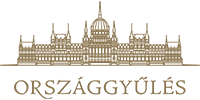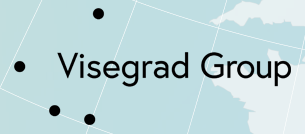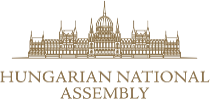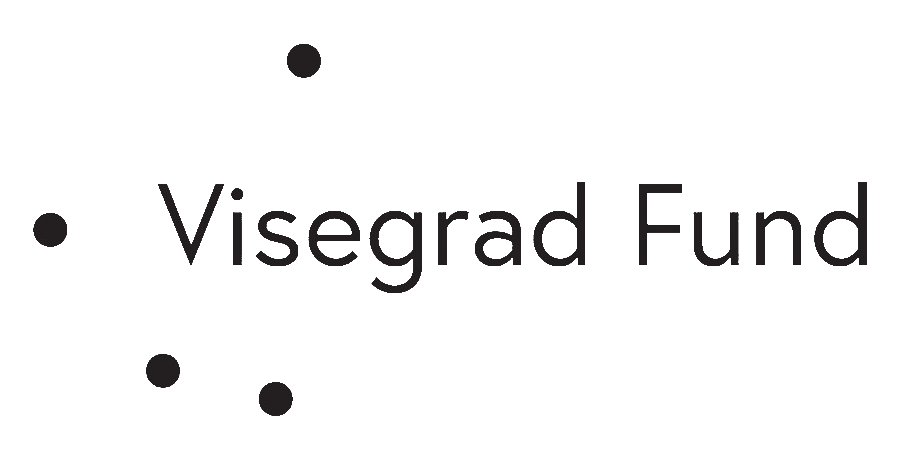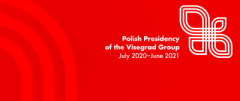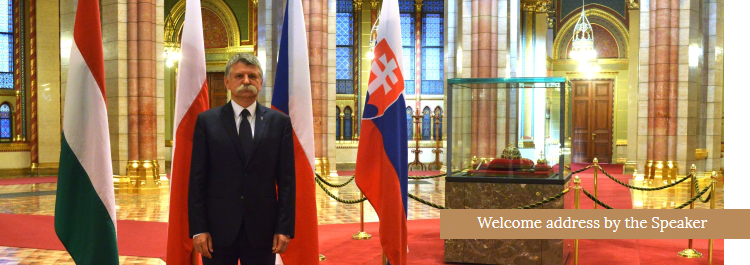
| Hungary will hold the Presidency of the Visegrád Group between 1 July 2017 and 30 June 2018, assuming the presidency from Poland. In the upcoming year, we will face a number of significant events and challenges that will demonstrate the critical importance of regional cooperation. |
Hungarian Presidency 01.07.2017 - 30.06.2018
Speaker-level meetings
The Meeting began as László Kövér – assessing the more significant results of the parliamentary cooperation of the Hungarian Presidency of the Visegrad Group – emphasized that the Hungarian Presidency successfully identified areas where the Visegrad countries can act together and where their positions are identical concerning their EU membership and Central European identity. These areas are reflected both in the conclusions adopted by the V4 parliamentary committees by consensus and by the Joint Declaration of the Presidents and Speakers of Parliaments adopted in March. The Speaker of the Hungarian National Assembly underlined that – from the perspective of the V4 countries’ parliamentary cooperation – relations have never been as visible and as intensive as in the past period. The visibility of the parliamentary cooperation of V4 countries was advanced by forwarding the declarations adopted by consensus to the EU's national parliaments and the EU institutions, and also by the launching of a V4 website - in Hungarian and in English - under the auspices of the Hungarian National Assembly. The conferences of experts, the higher level of cooperation among the parliamentary libraries, the series of cultural and musical programmes on Kossuth Square and the publication assessing the results of the work of V4 parliaments and featuring analyses on the future of the European Union all contributed to a heightened visibility.
The agenda of the Informal Meeting of the Presidents and Speakers of V4 Parliaments – in conformity to the agenda of the European Council at the end of June – featured the issue of the EU’s multi-annual financial framework for 2021–2027 and the issue of migration.
In his introductory remarks to the first topic, László Kövér concluded that the best interest of the V4 countries is a strong, secure and competitive EU, and that they envisage the new multi-annual financial framework as reflecting these principles. As regards competitiveness, the V4 countries welcome the increase in funds to be dedicated to innovation, research and development and digitalisation, but do not accept that the new areas should be funded at the expense of traditional policies (Common Agricultural Policy, Cohesion Policy). The Speaker of the Hungarian National Assembly pointed out that the proposal of the European Commission fails to reflect common priorities, does not ensure the same support to traditional policies as before, and the Visegrad countries and Baltic states would be most punished among Member States as the proposal reflects an overall more than 20% reduction in the funding they would receive under the Cohesion Policy. The Speaker of the Hungarian National Assembly underlined that the next multi-annual financial framework and the political will it reflects must both rest on mutual respect, and that the establishment of a mechanism making EU funding an instrument of exercising political pressure cannot be supported. Austria – holding the forthcoming EU Presidency - will play a fundamental role in determining the outcome of the negotiations on the EU’s financial framework mechanism. The V4 countries count on the partnership of Austria’s EU Presidency in making sure that on all issues of political sensitivity, Austria will take the position of the V4 countries into consideration as well.
Concerning the issue of migration, the Speaker of the Hungarian National Assembly emphasized in his introductory remarks that the focus must remain on halting the migration wave arriving from outside the European Union and on terminating the reasons that cause it. He also pointed out that an effective handling of migration requires that focus is put on areas where the member States agree, and that any continued effort to impose rules like mandatory relocation or the facilitation of legal migration routes would only contribute to the deepening of their division. „However, we do not only have to maintain the protection of the EU’s external borders, but must also strengthen it” –the Speaker of the Hungarian National Assembly accentuated.
Following the debate on the two topics on the meeting’s agenda, Andrej Danko presented the priorities and events of the parliamentary cooperation of the Slovak Presidency of the Visegrad Group in the period between July 2018 and June 2019. During its V4 Presidency, Slovakia will focus on internal dynamism, competitiveness, security and the strengthening of the Visegrad Region, which is an organic part of the EU. The Meeting was concluded by the Speaker of the Austrian National Council Wolfgang Sobotka presenting the priorities and planned programmes of parliamentary cooperation under the Austrian Presidency of the Council of the European Union to the participants.
Following the Informal Meeting of Presidents and Speakers of Parliaments, the parliamentary football teams of the V4 countries participated in a tournament in the football pitch of the Balatonfüred Football Club. The tournament ended with the victory of the Hungarian team.
Committee-level meetings
In his opening remarks Szilárd Németh highlighted: the choice of the topics of the meeting were not a coincidence, migration and the approach adopted to migration can be considered to be one of the greatest challenges of recent times. He welcomed the agreement among participants of the meeting that migration was a detrimental phenomenon, which beside the security implications also posed identity, existential, economic and social threats. Szilárd Németh expressed his conviction that the key element to sustainable migration policy was the control of the external borders and curbing the illegal movement of people. The Hungarian committee chairman emphasized: the objective of the V4 countries has to be to strengthen the security and the stability of the region, to promote peace and prosperity. Strengthening defence cooperation further has to be one the most important tool to this end. Szilárd Németh emphasized: the V4 countries contribute jointly to efficient border protection, preventing persons planning to perpetrate terrorist attacks from infiltrating European Union territory under the guise of mass illegal migration. Speaking about the 2015-2017 period, György Bakondi informed the participants in his contribution about the development of a joint and steadfast V4 position on migration, the forms of joint cooperation, about social and political reactions to migration challenges. Gábor Böröndi spoke about the role and the mission of the Hungarian Defence Forces in managing mass, illegal migration. Touching on the issue of the Common Security and Defence Policy, Szilárd Németh emphasized: thanks to recent political challenges – such as Brexit, the economic downturn in certain countries, international terrorism and the transformed European security environment – this topic has again gained prominence and has made the review of the Common Security and Defence Policy necessary. The defence of Europe and its citizens, crisis management and capacity building have become a priority. In his presentation on European defence industry cooperation Péter Siklósi spoke – among others – about the challenges affecting the EU Common Security and Defence Policy, security policy trends and objectives, permanent structured cooperation on defence, the creation of an operational planning and conduct capability, about improving the deployability of the battle groups, about strengthening the European technological and defence industry base, as well as EU-NATO cooperation.
At the end of their meeting, heads of delegations signed a closing document and informed members of the press about their deliberations.
Events
Annual Session of V4+ Parliamentary Libraries and Research Services 24-25 May 2018, Budapest
Preparation (01.07.2017 - 01.07.2016)
Speaker-level meetings
The Marshal of the Sejm of Poland Marek Kuchciński and the Marshal of the Senate of Poland Stanisław Karczewski convened a working meeting of V4 speakers of Parliament in Przemyśl on 3-4 December 2016. In addition to the hosts and Speaker Kövér, the Speaker of the National Council of the Slovak Republic Andrej Danko, the President of the Czech Senate Milan Štěch and the Vice President of the Chamber of Deputies of the Parliament of the Czech Republic Jaroslava Pokorná Jermanová also attended the meeting.
The agenda of the event included discussions concerning visions for the future of the European Union, including strengthening the roles national parliaments play, as well as practical proposals aimed at bolstering the recognition of V4 cooperation.
Committee-level meetings
The agenda of the meeting featured discussions of the impacts of the European Union, the United States and Russia, as well as the presidency of Donald Trump, on Eastern policy; European security challenges; and questions related to the southern neighbourhood, migration, terrorism, the conflict in Syria and relations with Turkey.
Ľuboš Blaha, Chair of the Committee on European Affairs of the National Council of the Slovak Republic, hosted the European affairs committees of the V4 for a meeting in Bratislava on 21-23 May 2017. Chair Richárd Hörcsik, Vice Chairs Zoltán Tessely and Tibor Bana, along with senior advisor László Juhász, represented the European Affairs Committee of the Parliament.
The agenda of the meeting included three topics: the dual quality of foodstuffs, the future of the European Union and a discussion of the agenda items of the upcoming, 57th (LVII) COSAC (Conference of Parliamentary Committees for Union Affairs) meeting.
Events
 The Speaker of Parliament was accompanied on his visit to Poland by Mrs. László Csúcs, the spokesperson for the Polish nationality in Parliament, and by Ministry of Agriculture Deputy State Secretary István Lóránt Szakáli.
The Speaker of Parliament was accompanied on his visit to Poland by Mrs. László Csúcs, the spokesperson for the Polish nationality in Parliament, and by Ministry of Agriculture Deputy State Secretary István Lóránt Szakáli.


